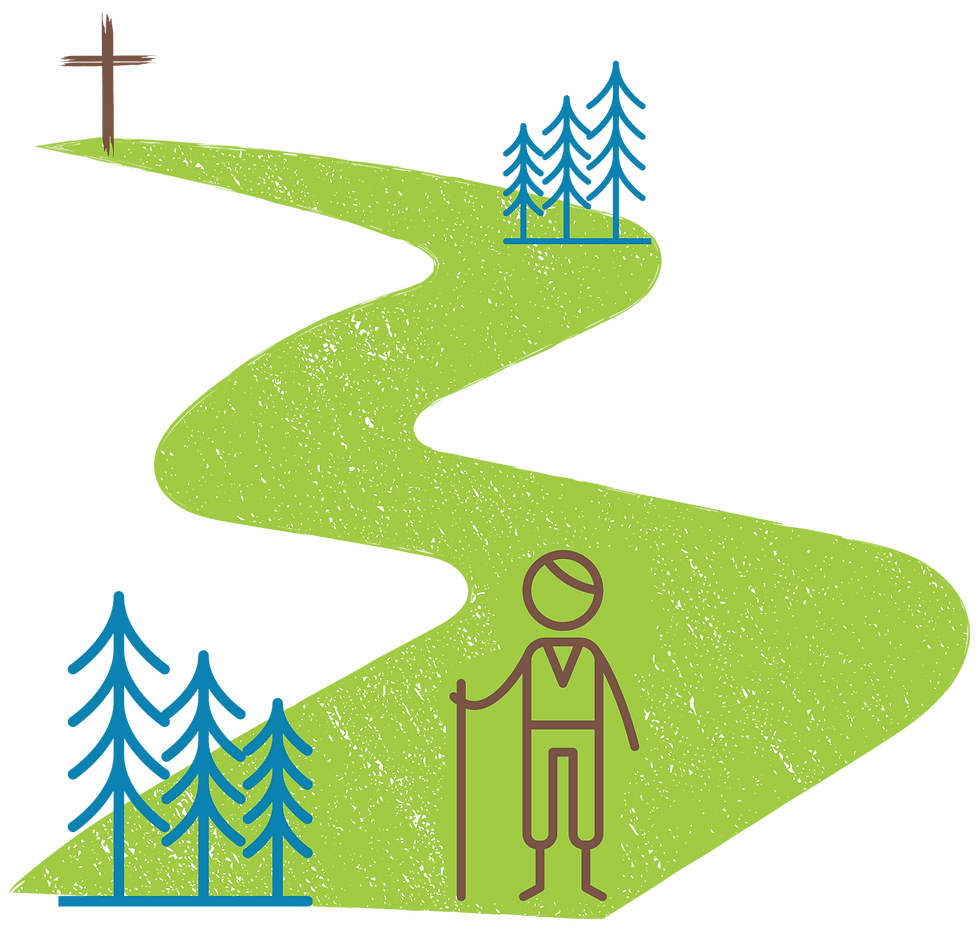Commitment, Fear, and Resistance
- Mike Bowling

- Oct 28, 2022
- 4 min read
by Mike Bowling

The proclamation of God’s kingdom has begun; an outline of the Kingdom’s nature has been revealed, and a discourse concerning the demands of the Kingdom has been delivered in a “mountaintop” event. Time to begin the journey in earnest. No sooner does Jesus reach the bottom of the mountain followed by large crowds, he begins to encounter situations symptomatic of a broken world following a path contrary to God’s rule. He’s approached by a suffering leper, a humble and compassionate soldier and a disciple’s plea on behalf of a feverish relative. Jesus’ acts of healing were only the beginning glimpse of Kingdom possibilities; it was time for him to keep moving.
Jesus gave orders to those who had chosen to follow him: “Let’s go to the other side of the lake and continue our mission.” He’d just finished teaching that the Kingdom trail contains challenges; it’s not a popular journey. Three examples of obstacles immediately present themselves: polarized commitments (vv. 18-22), scary situations (vv. 23-27) and unexpected resistance (vv. 28-34). These obstacles in some form will face churches and disciples of Jesus throughout history. And yes, they are challenging for us today at Englewood.
Few things are more discouraging than hyperbolic promises of commitment which shrivel up during times of trial. Already, Jesus has warned that commitments should be voiced modestly; the example he gave was a warning related to making vows. When a would-be disciple vowed “I will follow you wherever you go,” Jesus responds with a sobering reality…”I am homeless.” Traveling on the Jesus trail is not a walk in the park; it requires realistic assessments of difficulties we’ll encounter, humble awareness of human limits and dependency on the “trailblazer.” Equally discouraging are fellow travelers leaving the path because of distractions. When a disciple asked for a leave of absence to bury his father, Jesus responds in a surprising way: “Let the dead bury their own dead” feels like an uncharacteristically cold reaction, but Jesus marks the importance and the urgency of the mission. The in-breaking Kingdom is the emergence of a culture of life within a culture of death. Nothing takes priority over the mission. There will always be “important” events demanding the attention of disciples and churches; these events always require discernment of distinguishing between obligation and excuse.
A second obstacle to following Jesus will be the scary moments. In those moments, will God be trusted? If one’s whole life is built on a confident hope in the mission of God and following the One who is the embodiment of God’s perfect will, why not trust God in scary moments? The honest answer to the question is “none of us are complete and no church community is fully mature.” We all have nagging doubts; we’re all works in progress, as were the original disciples of Jesus. However, when a violent storm threatens to sink their boat, any reasonable person would be afraid. If Jesus were in the boat, wouldn’t most believers give a sleeping savior an urgent shake, just in case he wasn’t aware of the emergency? Jesus’ sharp response and calming of the storm and sea should not be misunderstood. Jesus asleep during the storm demonstrates his trust in the Creator. Jesus’ stern words for his disciples resulted from their failure to follow his example. Jesus isn’t criticizing their lack of faith in him; he’s identifying their lack of faith in God. Failure to make this distinction results in more despair when Jesus is arrested, scourged and executed. Take a few moments: Why is that distinction important for you and for us as a congregation?
Finally, there is the obstacle of unexpected resistance. Matthew relates the familiar story of two men (only one man in the Gospel of Mark’s somewhat different version of the story) who were demon-possessed. For those interested in an intriguing interpretation of this story, check out Walter Wink’s book Unmasking the Powers. In this meditation, I am more interested in the city’s response to the incident. As the Kingdom is experienced, healing will take place; liberation will take place, and many other ultimately positive things will take place. And yet, because of stubbornly held traditions, economic self-interest and a desire to hold on to various expressions of power, there will be resistance! The city in this story reacts in an unexpected way. The demon-possessed men are a menace; they are violent and uncontrollable. Jesus, through the power of God, heals the two men and liberates the city with one word…”Go!” But in the process, a herd of pigs are plunged into the sea. This event challenges the socio-economic status quo. Mammon and power are the two-headed monster of most cities; when this monster is challenged, resistance happens. The kingdom of God will always challenge expressions of mammon and power.

Englewood, like every church community, will always face these obstacles encountered by the disciples in Matthew 8:18-34. As each of us humbly admit our brokenness, we will find ways to encourage one another in faithful participation in God’s mission. We must stay united in our love for one another and maintain our focus on the way of Jesus; these will fortify us for the scary moments ahead. Neighbors are afraid and cities are captive to various powers; we must meet their resistance not with empty words, clever rhetoric or our own versions of power. We must continue to live as a faithful expression of Jesus. Let’s stay on the trail of the Jesus way!





Comentarios